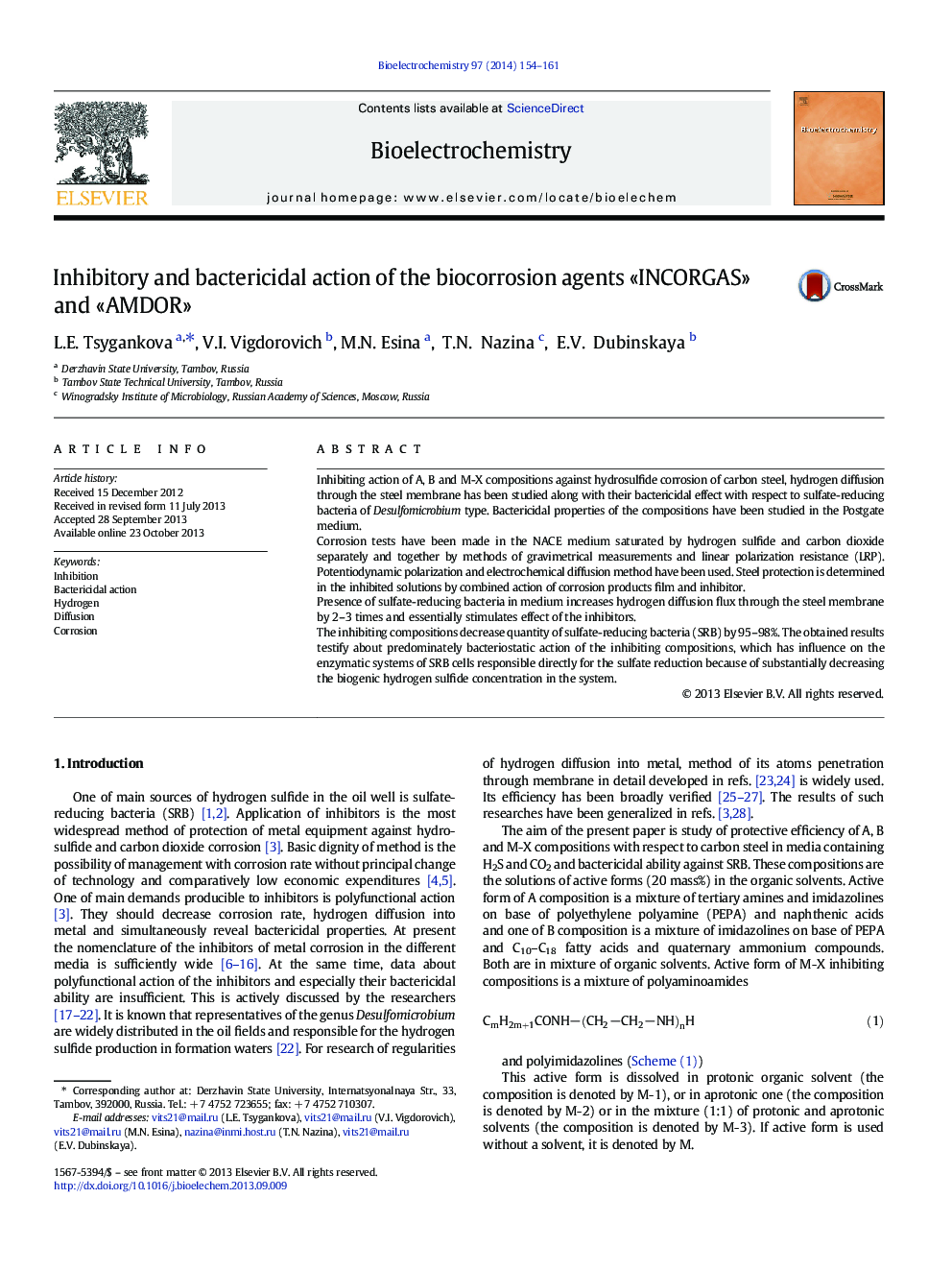| Article ID | Journal | Published Year | Pages | File Type |
|---|---|---|---|---|
| 1268002 | Bioelectrochemistry | 2014 | 8 Pages |
•Influence of corrosion inhibitors on SRB development is shown.•Hydrogen penetration into metal increases in SRB presence.•Corrosion inhibitors retard steel hydrogenation in SRB presence.•Corrosion inhibitors suppress SRB vital activity.
Inhibiting action of A, B and M-X compositions against hydrosulfide corrosion of carbon steel, hydrogen diffusion through the steel membrane has been studied along with their bactericidal effect with respect to sulfate-reducing bacteria of Desulfomicrobium type. Bactericidal properties of the compositions have been studied in the Postgate medium.Corrosion tests have been made in the NACE medium saturated by hydrogen sulfide and carbon dioxide separately and together by methods of gravimetrical measurements and linear polarization resistance (LRP). Potentiodynamic polarization and electrochemical diffusion method have been used. Steel protection is determined in the inhibited solutions by combined action of corrosion products film and inhibitor.Presence of sulfate-reducing bacteria in medium increases hydrogen diffusion flux through the steel membrane by 2–3 times and essentially stimulates effect of the inhibitors.The inhibiting compositions decrease quantity of sulfate-reducing bacteria (SRB) by 95–98%. The obtained results testify about predominately bacteriostatic action of the inhibiting compositions, which has influence on the enzymatic systems of SRB cells responsible directly for the sulfate reduction because of substantially decreasing the biogenic hydrogen sulfide concentration in the system.
